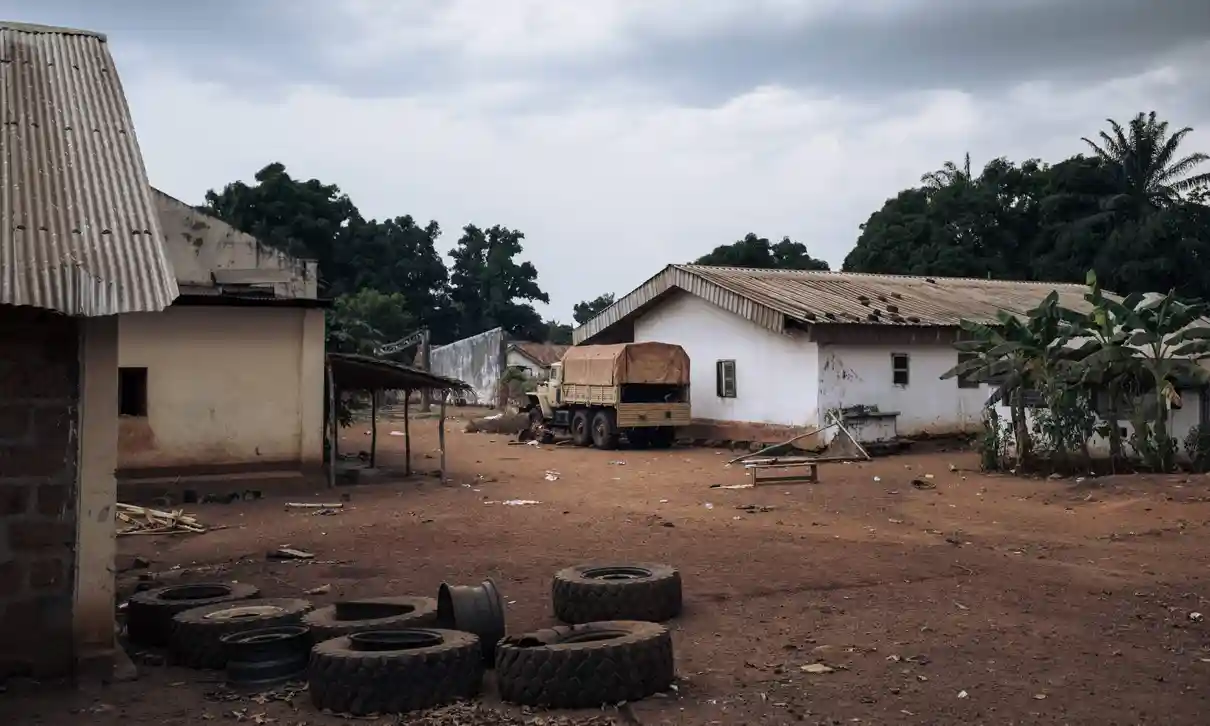Mali’s military leaders under pressure to pull back from suspected agreement with Wagner Group
The UK has joined a mounting international campaign of pressure on Mali’s military leaders to step back from a suspected deal with a Russian mercenary company, amid fears that the agreement will further complicate insecurity in the region.
Mali’s leaders, battling a jihadist insurgency – and amid a fragile political transition following multiple coups – have been coy on details of a reported deal with the Wagner Group.
Yet Russia’s foreign minister, Sergei Lavrov, conceded last week that talks with Mali had occurred. “They have turned to a private military company from Russia,” he said at the UN general assembly last Saturday. “France wants to significantly draw down its military component which was present there.”
The developments have sparked international concerns, anger in France, and mixed reactions within Mali amid the worsening violence suffered in the country.
Former colonial ruler France retains close tiesand a significant military presence in Mali – increasingly contentious among Malian people after alleged abuses, including an airstrike killing 19 people at a wedding in January.
Early gains against jihadists led by French forces have been overtaken by rising violence in Mali and the Sahel, inflicting a mass humanitarian crisis in the region. France this year committed to significantly scale back its 5,000 troop Barkhane military force.
Amid uncertainty over the Wagner deal, there are concerns that Russia may attempt to exploit any withdrawal of French forces and support efforts by Mali’s Junta to remain in power. The Wagner Group, which is already active in Central African Republic, has been accused of giving Russia control over mineral resources and committing human rights violations. A report by UN investigators this year found that mercenaries and allied government troops committed “indiscriminate killings, occupation of schools and looting on a large scale, including of humanitarian organisations”.
Other countries have threatened to withdraw military and political support if the deal progresses.
On Wednesday night, the UK’s Africa minister, Vicky Ford, called for Mali to reconsider any agreement. “The UK is deeply concerned by consultations between the Malian government and the organisation known as the Wagner Group,” she said in a statement. “The Wagner Group is a driver of conflict and capitalises on instability for its own interests, as we have seen in other countries affected by conflict such as Libya and Central African Republic.”
Backing concerns expressed by regional west African leaders, she added, “We support Ecowas in urging the Malian government to reconsider their engagement with Wagner.”
The French armed forces minister, Florence Parly, also condemned the prospect of a deal with Wagner. “If Mali commits to a partnership with these mercenaries, then Mali will isolate itself and will lose the support of the international community which is heavily engaged in Mali,” she said. “It is not possible to cohabit with mercenaries.”
Mali’s interim prime minister, Choguel Maiga, installed after the country’s second coup in a year in May, accused France of “abandoning us mid-flight to a certain extent – and it leads us to explore pathways and means to better ensure our security autonomously.”
Within Mali, the prospect of a deal with the Wagner Group deal is feared by many in the political elites as well as opposition and civil society groups, but has been welcomed by many who are keen to reset Malian-French ties, according to Boubacar Haidara, a lecturer at the University of Segou in Mali and an associate researcher at Sciences Po Bordeaux.
“This situation seems very well received among the population. The junta is very aware of this, and is using it,” he said, adding that military leaders struggling for legitimacy were capitalising on popular anti-French sentiment. “The junta wants to utilise this question [of mercenary involvement] against France and the international community, at a time when these two entities urge it to cede power to democratic actors,” he said.
A popular desire for peace talks with the jihadist groups, which France has opposed, was also a factor, he said.
“The emphasis must be on political initiatives and dialogue, especially with armed groups. But France is against it! This situation arouses enormous incomprehension among Malians.”
Oulimata Soumaré, an analyst on politics and security in the Sahel at Control Risks, said the Wagner Group deal was a signal that, “the interim government in Mali is pushing for an extension of the transition.”
“It feels a very carefully orchestrated power tussle, with the Malian interim government capturing the attention of both western and non–western military partners,” Soumaré said.
Meanwhile jihadist attacks in Mali are likely to intensify in the coming months, she said. “The end of the rainy season, October, is usually marked by an uptick of militant attacks, and Malian civilians are likely to bear the brunt of this next cycle of violence.”

